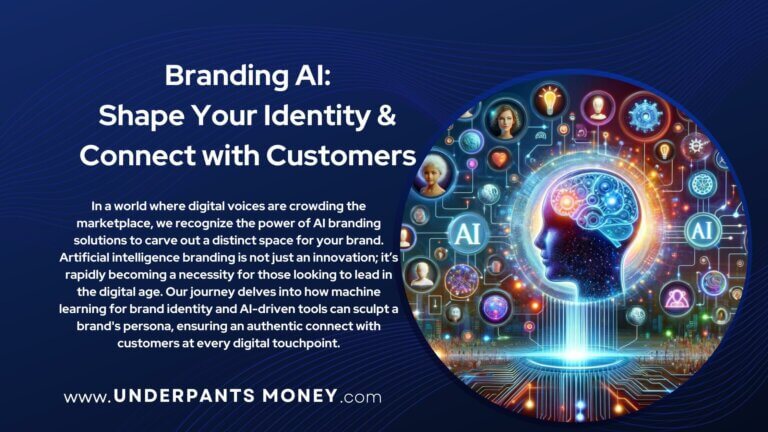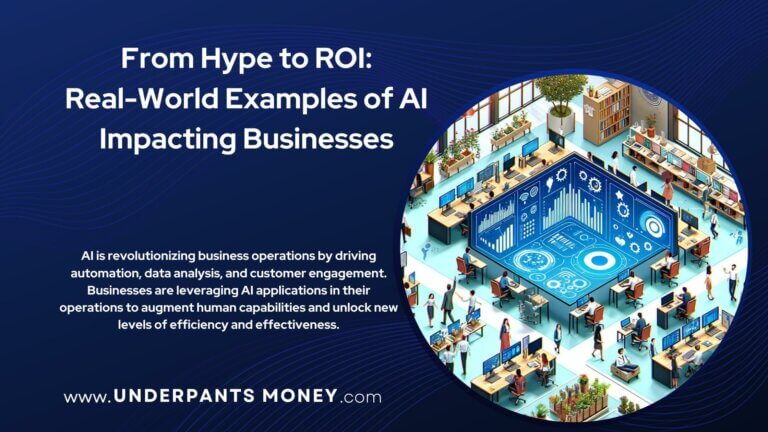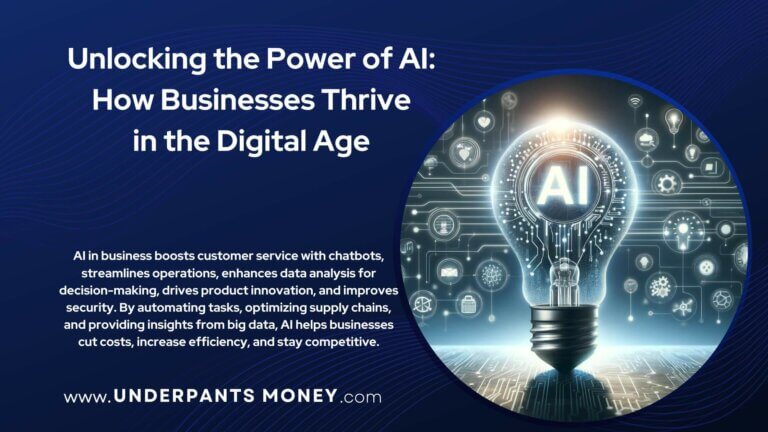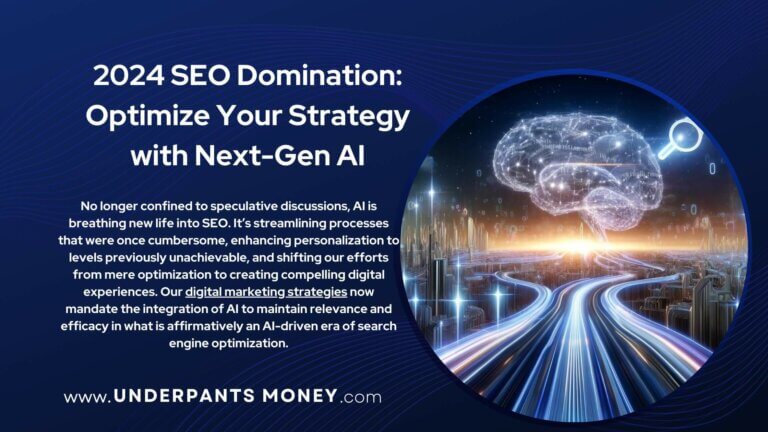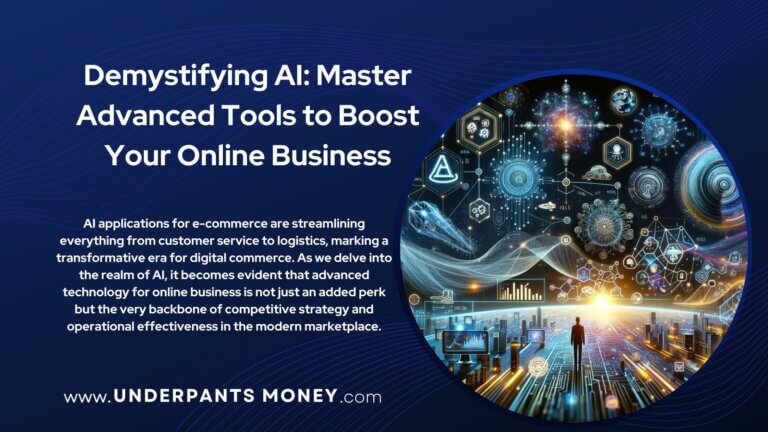The Future of Decision Making: The Impact of AI in Business Analytics
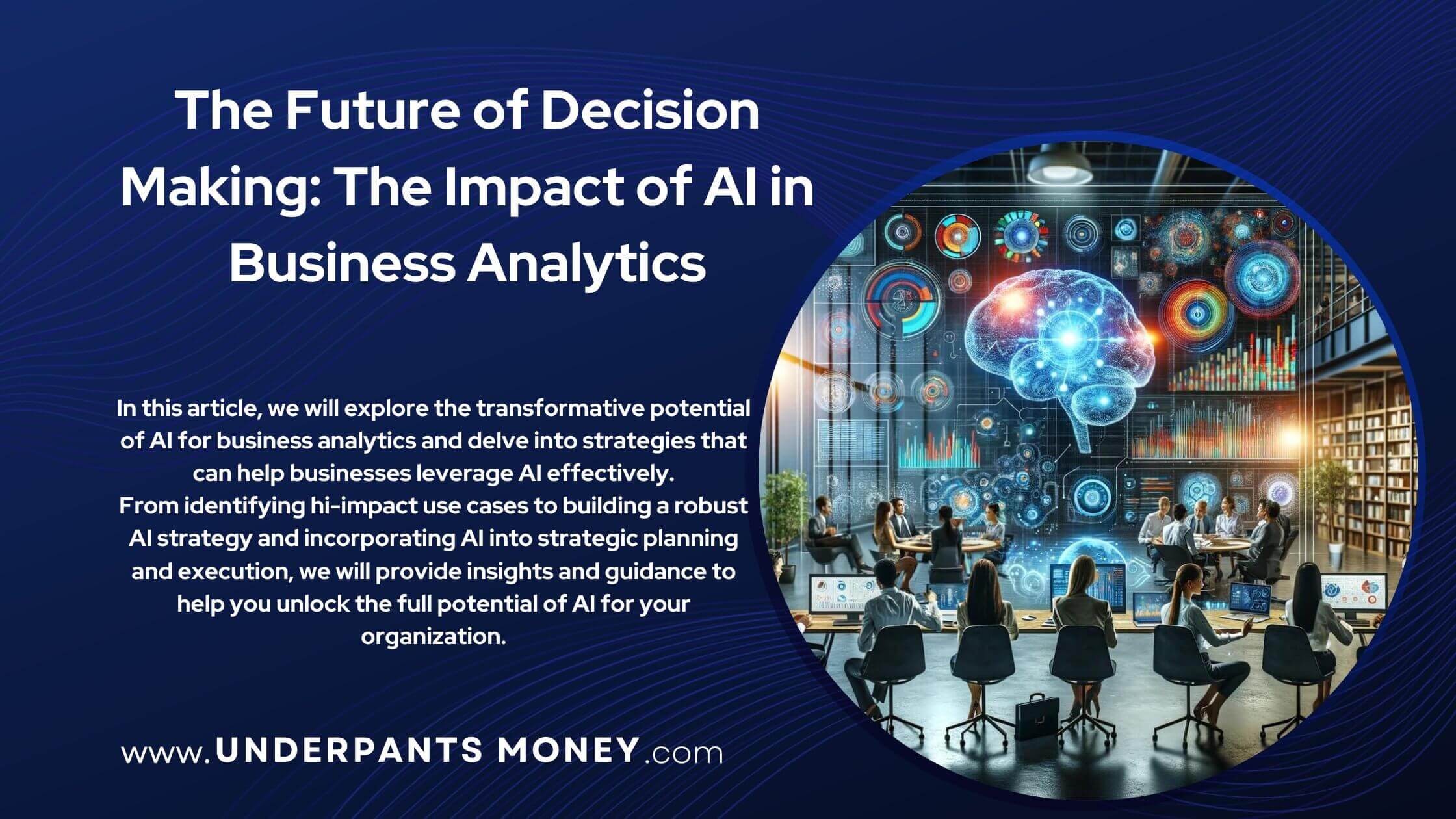
Did you know that 80% of business leaders believe that artificial intelligence (AI) will revolutionize the way companies analyze data and make decisions?
In today’s fast-paced and data-driven business landscape, organizations that harness the power of AI for business analytics have a significant advantage. AI can automate data analysis, provide valuable insights, and enable predictive modeling to drive growth and improve operational efficiency.
In this article, we will explore the transformative potential of AI for business analytics and delve into strategies that can help businesses leverage AI effectively. From identifying hi-impact use cases to building a robust AI strategy and incorporating AI into strategic planning and execution, we will provide insights and guidance to help you unlock the full potential of AI for your organization.

How to Use AI for Business Analytics?
To effectively use AI for business analytics, follow these specific steps:
- Define Specific Use Cases: Identify clear, actionable use cases where AI can add value, such as predictive maintenance for manufacturing equipment or customer churn prediction in telecom services.
- Gather Quality Data: Collect high-quality, relevant data specific to your use cases. Ensure the data is clean, well-organized, and comprehensive, including historical data for training AI models.
- Select Specialized AI Tools: Choose AI platforms and tools tailored to your industry and use cases. For instance, if you’re focusing on customer data analysis, tools like Salesforce Einstein or Google Analytics AI might be appropriate.
- Deploy AI Models: Utilize specific AI models suited to your objectives. For predictive analytics, consider regression models or neural networks. For classification tasks, decision trees or support vector machines could be more suitable.
- Integrate AI Insights with Business Processes: Embed the AI-generated insights directly into your business operations. For example, incorporate predictive analytics into your inventory management system to optimize stock levels based on forecasted demand.
- Measure Outcomes and Adjust: Establish KPIs to measure the impact of AI on your business analytics efforts. Use these metrics to continually refine your AI models and strategies for better accuracy and relevance.
- Train Your Team on AI Tools: Provide specific training for your team on the AI tools and models you are using. This might include workshops on data interpretation with IBM Watson or model customization in TensorFlow, depending on the technologies employed.
For a comprehensive look at how to successfully implement AI in your organization, including essential prerequisites and a 10-step process, consider exploring TechTarget’s guide on AI implementation.
Discover Hi-Impact Use Cases of AI for Business Analytics
Artificial intelligence (AI) has demonstrated its transformative capabilities in various industries, empowering companies to gain valuable insights into consumer behavior, optimize business processes, and perform predictive analysis. The application of AI in business analytics has proven to be highly impactful, delivering tangible benefits and driving success. Let’s explore some key use cases of AI in business analytics:
- Fraud Detection in the Financial Sector: AI-powered algorithms can analyze large volumes of data, identify suspicious patterns, and detect potential fraudulent activities. This technology enables financial institutions to enhance security measures and minimize financial risks.
- Virtual Assistance in Customer Service: AI-driven chatbots and virtual assistants provide prompt and personalized customer support, addressing queries and resolving issues efficiently. These virtual assistants can significantly improve customer satisfaction and streamline customer service operations.
- Personalized Marketing Campaigns: AI algorithms can analyze customer data, behavior patterns, and preferences to develop targeted marketing campaigns. By leveraging AI, businesses can deliver highly personalized content and offers, enhancing customer engagement and boosting conversion rates.
Embracing AI and identifying the appropriate use cases can be a game-changer for companies looking to stay ahead and drive success in today’s competitive landscape.
| AI Use Case | Industry | Benefits |
|---|---|---|
| Fraud Detection | Financial | Enhanced security, minimized financial risks |
| Virtual Assistance | Customer Service | Improved customer satisfaction, streamlined operations |
| Personalized Marketing Campaigns | Marketing | Increased customer engagement, higher conversion rates |
As illustrated in the table above, these hi-impact AI use cases offer numerous advantages for businesses. The integration of AI in business analytics empowers organizations to stay competitive, optimize processes, and make data-driven decisions, ultimately driving long-term success.
Build an Effective AI Strategy for Business Analytics
Building an effective AI strategy is crucial for leveraging AI in business analytics. At [Company Name], we understand the importance of harnessing the power of AI to drive growth and gain a competitive edge in today’s dynamic business landscape. To develop a strong AI strategy, businesses need to focus on key areas such as data insights and analysis, innovation, customer experience, operational efficiency, and risk management.
| Key Components of an Effective AI Strategy | Description |
|---|---|
| Data Insights and Analysis | Utilize AI algorithms and tools to extract meaningful insights from large datasets, enabling informed decision-making and identifying valuable business opportunities. |
| Innovation | Embrace AI technologies to drive innovation across different business processes, products, and services, fostering differentiation and staying ahead of the competition. |
| Customer Experience | Employ AI solutions to enhance the overall customer experience, personalize interactions, and deliver tailored products and services, building long-term customer loyalty. |
| Operational Efficiency | Streamline operations by integrating AI into various tasks and workflows, automating repetitive processes, reducing errors, and improving overall efficiency. |
| Risk Management | Utilize AI capabilities to identify potential risks, detect fraudulent activities, and ensure compliance with regulatory requirements, minimizing operational and financial risks. |
Driving Sustainable Growth with AI
By combining the power of AI and business intelligence (BI), organizations can create a sustainable competitive advantage and drive growth in the long term. AI-driven business analytics enables companies to make data-driven decisions, optimize performance, and uncover hidden insights. Building an effective AI strategy ensures that businesses capitalize on the full potential of AI, transforming raw data into actionable intelligence that fuels decision-making at all levels of the organization.

Invest in Continuous Learning for AI-driven Business Analytics
Investing in continuous learning is essential for businesses looking to leverage AI-driven business analytics and drive growth. By providing employees with regular training and development opportunities, companies can enhance productivity and satisfaction levels while equipping their workforce with the skills needed to succeed in this rapidly evolving field.
The Benefits of Continuous Learning
Continuous learning plays a critical role in ensuring the success of AI-driven business analytics initiatives. Here are some key benefits:
- Enhanced Productivity: Continuous learning keeps employees up-to-date with the latest advancements in AI technologies and data analysis techniques. This knowledge empowers them to utilize AI tools effectively, leading to improved productivity and performance.
- Improved Employee Satisfaction: Offering opportunities for training and development demonstrates a commitment to employee growth and professional advancement. This investment in employees’ career development fosters a sense of satisfaction and loyalty, leading to higher retention rates.
- Increased Skills and Confidence: Continuous learning enables employees to acquire new skills and knowledge, empowering them to tackle complex challenges in AI-driven business analytics. As employees expand their expertise, they gain the confidence to make data-driven decisions and drive innovation within the organization.
The Role of Continuous Learning in AI-driven Business Analytics
Continuous learning forms the foundation for building a highly skilled and adaptable workforce capable of harnessing the full potential of AI in business analytics. By investing in employee training and development, businesses ensure that:
- Employees are equipped with the necessary technical skills and knowledge to implement AI-driven analytics tools effectively.
- The workforce stays updated with the latest trends and best practices in AI and data analysis, enabling them to make informed decisions and extract meaningful insights from data.
- The organization can effectively adapt to technological advancements and leverage AI innovations to gain a competitive edge.
By promoting a culture of continuous learning, businesses can nurture a motivated and skilled workforce capable of driving innovation, enhancing productivity, and ultimately achieving success in AI-driven business analytics.

Incorporate AI into Strategic Planning and Execution for Business Analytics
When it comes to driving success in today’s dynamic business landscape, incorporating AI into strategic planning and execution is essential. AI technology has the power to transform business operations by automating tasks, gathering and analyzing data, and providing valuable insights for informed decision-making.
By leveraging AI in strategic planning, businesses can gain a competitive advantage and streamline their processes. AI-powered analytics can help organizations identify trends, patterns, and opportunities that may otherwise go unnoticed, enabling them to make data-driven decisions that drive growth and profitability.
Moreover, incorporating AI into the execution of strategic plans allows for seamless implementation and monitoring. AI tools and algorithms can optimize resource allocation, enhance productivity, and mitigate risks, ensuring that businesses stay on track towards their goals.
One area where AI can significantly impact business operations is customer experience. By harnessing the power of AI, companies can personalize and tailor their products and services to meet the unique needs and preferences of each customer. Advanced algorithms can analyze vast amounts of customer data to provide personalized recommendations, optimize pricing strategies, and deliver timely and relevant marketing campaigns.
In addition to improving customer experience, AI can also enhance decision-making processes. AI-powered analytics can efficiently process large volumes of complex data, uncovering valuable insights that can inform strategic decisions. From forecasting market trends to optimizing supply chain management, AI can help businesses make informed choices that lead to success.
To illustrate the benefits of incorporating AI into strategic planning and execution, consider the following example:
A leading e-commerce company embraces AI in its strategic planning and execution to drive business analytics. By leveraging AI algorithms, the company analyzes customer data, purchase history, and browsing patterns to personalize product recommendations. Through strategic partnerships and AI-enabled supply chain management, the company ensures efficient inventory management and timely deliveries. The integration of AI into the company’s decision-making processes empowers them to stay ahead of market trends, optimize pricing strategies, and meet customer demands effectively, resulting in increased sales and customer satisfaction.
By incorporating AI into strategic planning and execution, businesses can optimize their operations, improve customer experience, and make data-driven decisions that lead to success. Embracing AI technology is a crucial step towards staying competitive and thriving in today’s rapidly evolving business landscape.
Benefits of Incorporating AI into Strategic Planning and Execution
| Benefits | Description |
|---|---|
| Streamlined processes | Automating tasks and optimizing resource allocation leads to improved operational efficiency. |
| Competitive advantage | AI-powered analytics uncover insights and opportunities that give businesses an edge over competitors. |
| Personalized customer experience | AI enables businesses to deliver tailored products, services, and marketing campaigns based on individual customer preferences. |
| Data-driven decision making | AI algorithms process and analyze complex data to provide valuable insights for strategic decision-making. |

By incorporating AI into strategic planning and execution, businesses can unlock the full potential of their data, improve operational efficiency, enhance the customer experience, and make informed decisions that drive success.
Key Takeaways:
- AI has the power to revolutionize business analytics and drive success.
- Identifying hi-impact AI use cases can help organizations unlock new growth opportunities.
- Building a strong AI strategy is crucial for leveraging AI in business analytics.
- Investing in continuous learning for AI-driven business analytics can lead to a more engaged and productive workforce.
- Incorporating AI into strategic planning and execution can streamline business operations and improve decision-making.
Conclusion
In today’s competitive business landscape, AI has the transformative power to revolutionize business analytics and drive success. By effectively leveraging AI and business intelligence, organizations can unlock new growth opportunities, improve operational efficiency, and outperform the competition.
The integration of AI into business strategies allows for data-driven decision making, enabling companies to make informed choices based on valuable insights. By harnessing the transformational power of AI, businesses can gain a sustainable competitive advantage and stay ahead in the market.
Embracing AI for business analytics is essential in today’s fast-paced world. With its ability to analyze vast amounts of data, identify patterns, and predict outcomes, AI empowers organizations to make better decisions, optimize processes, and enhance the overall customer experience. The data-driven approach enabled by AI enables businesses to innovate and adapt quickly to changing market dynamics and customer demands.
In conclusion, the integration of AI into business analytics has become increasingly indispensable. Organizations that leverage AI effectively and embrace data-driven decision making will not only gain a competitive advantage but also unlock new horizons of growth and success.
FAQ
How can AI be leveraged for business analytics success?
AI can be leveraged for business analytics success by enabling companies to gain insights into consumer behavior, optimize business processes, and perform predictive analysis. It can streamline operations, reduce costs, and increase revenue.
What are some hi-impact use cases of AI for business analytics?
Some hi-impact use cases of AI for business analytics include fraud detection in the financial sector, virtual assistance in customer service, and personalized marketing campaigns.
What are the key aspects of building an effective AI strategy for business analytics?
The key aspects of building an effective AI strategy for business analytics include focusing on data insights and analysis, innovation, customer experience, operational efficiency, and risk management.
Why is continuous learning important for AI-driven business analytics?
Continuous learning is important for AI-driven business analytics as it enables employees to increase their skills, confidence, and loyalty, leading to a more engaged workforce. It also drives growth and competitive advantage.
What are the benefits of incorporating AI into strategic planning and execution for business analytics?
Incorporating AI into strategic planning and execution for business analytics can automate tasks, gather and analyze data, and provide insights for informed strategic decisions. It streamlines processes, improves efficiency, and gives businesses a competitive advantage.

